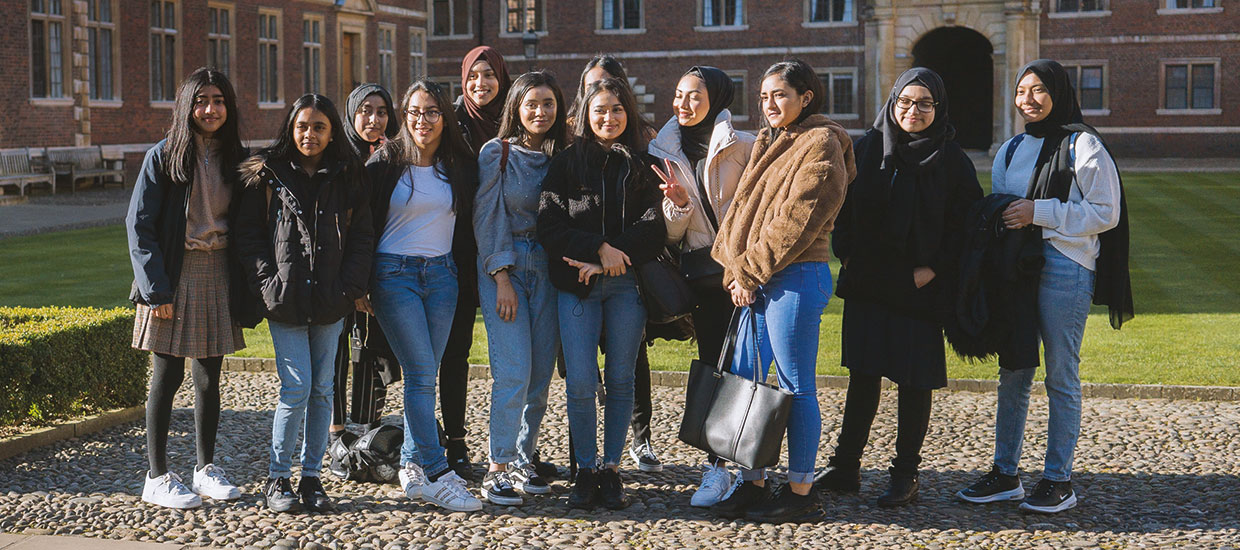Access for all
Social mobility is stalling, but one charity is helping pupils from disadvantaged backgrounds get into top universities

The Access Project (TAP) is dedicated to levelling up opportunities for academically able students in areas with low transition rates to attend top universities. Set up in 2008 by an inner-London schoolteacher (who demonstrated how extra tuition and support had helped his own pupils access university), its core belief is that ‘every young person, regardless of background, can make the most of education, unlocking their potential and creating a fairer society’. The project is currently working with 30 schools across London and the Midlands. More than 90% of its students come from the most disadvantaged backgrounds – those on pupil premium or receiving free school meals, those in care and care leavers, and young people in areas of low access to higher education.
Around 40 pupils in each school benefit from TAP’s dual programme of personalised tuition and in-school mentoring, which includes help with revision skills and university applications, as well as workshops on the university experience. Usually, this support is provided in person, but in 2020 TAP developed a bespoke online platform.
Against a background of declining social mobility, TAP’s work is crucial. Analysis by UCAS reveals that pupils helped by the charity are four times as likely as similarly disadvantaged young people to attend top universities. Moreover, 61% of TAP students got places at the top third of UK universities in 2018/19. In addition, pupils who study with TAP for two years at GCSE make five months more progress than their peers. And A-level students make six months more progress if they attend 23 or more tutorials, according to independent research institute FFT Datalab.
School mentors are trained and employed by the charity. While schools contribute pupil premium allowance towards the cost, this is match-funded by TAP (from a donor mix of company sponsors, high-net-worth individuals and grants).
Often PhD graduates with an interest in education, mentors are typically based in school for two days a week. They work alongside school staff on a targeted programme to equip students with the knowledge and support to make strong university applications.
TAP also organises and trains personal tutors – usually volunteers employed by large corporations (such as the BBC and international law firm Slaughter and May), with a background in the subject they are tutoring. Students see their tutor for an hour a week (at the tutor’s place of work, when coronavirus restrictions aren’t in place).
In autumn 2020, TAP began working with the newly formed National Tutoring Programme – a national effort to support students most affected by the pandemic. Designed by a collaboration of five charities – the Education Endowment Foundation, The Sutton Trust, Impetus, Nesta and Teach First – working in partnership with the Department for Education, the NTP aims to support schools in England by providing high-quality tuition to close the attainment gap.
- For more information, visit theaccessproject.org.uk, or email info@theaccessproject.org.uk
- Find out more about the National Tutoring Programme at nationaltutoring.org.uk
Case study: TAP at the Shirebrook Academy
‘I set up our partnership with TAP because of my belief in the need for students from disadvantaged areas to be given assistance in raising their aspirations. I was the first person in my family to go to university, so I know that many students living in a traditionally working-class town such as Shirebrook can grow up thinking that university is not a place that people from Shirebrook go to. As such, they may not approach their learning with the same attitude as somebody who sees higher education as a natural next step.
Our school’s mission is to encourage students to break free of their assumptions by giving them the education and aspiration they need to exceed their own expectations. However, we needed specialist input to help students whose academic promise may not be matched by the necessary learning resource or cultural capital at home.
The past three years of working with TAP have been very positive. We have been able to give our students the resources and support they need to excel at their studies and receive a huge boost to their self-esteem. Although our students leave us at 16, we know that many are indeed going onto Russell Group universities once they have finished their A-level studies. There is a definite trickle-down effect too. Students in school are aware of how the project has helped other year groups and want to benefit from the same experience.’
Mark Cottingham, principal, Shirebrook Academy, Nottinghamshire (839 pupils)
‘Being tutored online is really easy and the equipment TAP provides means I can access the free tuition. Without the programme, I wouldn’t have been able to do extra learning and fully understand my capabilities. I would have shied away from going to university because it’s such a big step, but TAP encourages you to believe you can get to top universities.’
Beth, Year 11 student tutored in maths
‘No one in my family has been to university, so my parents are really supportive of me taking part in TAP. I think young people here know there might be a possibility of getting to a top university, but the workload is daunting and it’s knowing how to go about it. You need to be guided through it and it takes a lot of time and effort. The Access Project makes a difference because you get extra help, you feel supported, and it boosts your skills on top of what you’re learning in school.’
Keira, Year 10 student tutored in Spanish
More on grants
